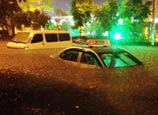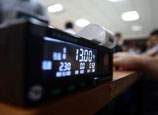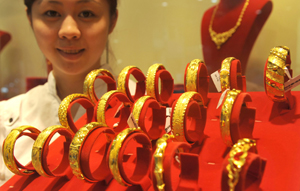
DAMASCUS, June 11 (Xinhua) -- Almost one week after being declared secured and free of gunmen, the residents of al-Qussair city in Syria's central province of Homs have gradually started returning to their houses, either to settle back or to check their abandoned homes.
On June 5, official media announced that the Syrian army entirely recaptured the al-Qussair city after battles with opposition fighters, while opposition fighters said they withdrew from the city after an alleged "massacre" in the city that had killed hundreds.
The government has been working to rehabilitate the city, about 15 km west of Homs, which is considered a vital route for gunmen to get weapons, reinforcements and food supply from neighboring Lebanon.
The violence-hit city had about 60,000 residents before the outbreak of protests in 2011. Clashes forced about 45,000 people to flee.
Today, telephone and electricity cables torn from overhead poles were strewn across the streets and sidewalks.
Graffiti on the city walls, such as "al-Faruq, and al-Waleed Brigades" and "al-Qussair will be the cemetery of the invaders," were still obvious. Meanwhile, most of the city mosques have been partially destroyed. The Church of Mar Elias has been shattered and its contents have been either ruined or stolen.
Workers have started removing dirt piles and reopening roads after clearing barricades, as engineering units were dismantling mines and explosives placed by the rebels.
Al-Qussair has been recaptured by the army and is now free from terrorists, a Syrian officer, who supervises the situation in the city, told Xinhua on condition of anonymity.
The Syrian officer said that there were almost 15,000 militants in the city, most of them foreigners, stressing that a large number of them had been arrested and investigations started with them.
The field commander also said the Syrian army launched another military offensive in the northern countryside of the northern city of Aleppo to retake opposition-held areas.
Tawfiqa Wakid, a Christian resident of al-Qussair, told Xinhua while checking her house that she fled the city two years ago and described the situation in the city as "frightening."
She said that almost all houses in the city had been leveled to the ground and some others partially damaged.
"The doors, and even their frames and hinges, were taken off," she said, adding that "Also, the electricity cables and water faucets were dismantled and stolen... We have been displaced for two years, and we don't know what had happened in our homes."
She said when she was forced to run away, she took only with her clothes, adding that Christians have been largely harassed by armed groups and were not allowed to stay in the city.
Wakid noted that "the security situation is good now but the reconstruction process of the city would need a long time. Some families are returning to check their houses and they try to find their belongings or furniture and take it with them."
Meanwhile, Ahmad Munir, the governor of Homs province, told Xinhua that "the Syrian army has worked on cleansing and rooting out terrorism... There will be no return for terrorism neither in al-Qussair nor its countryside."
He underlined the importance of the city for the government, saying "Al-Qussair is opened to the countryside of Damascus, the Syrian desert, Raqqa, Aleppo, Hama and the city of Homs, where some pockets still exist."
"Those pockets are receiving aid via borders with Lebanon and they used the citizens as human shields. Now the sources of terrorism have been dried up," he said.
Looking around in anguish, Maha Ghanem, 65, said while trying to hold back tears that all her house's stuffs had been stolen by gunmen.
"I haven't imagined that the destruction would be so huge," she let out a sigh and said.


















![]()
